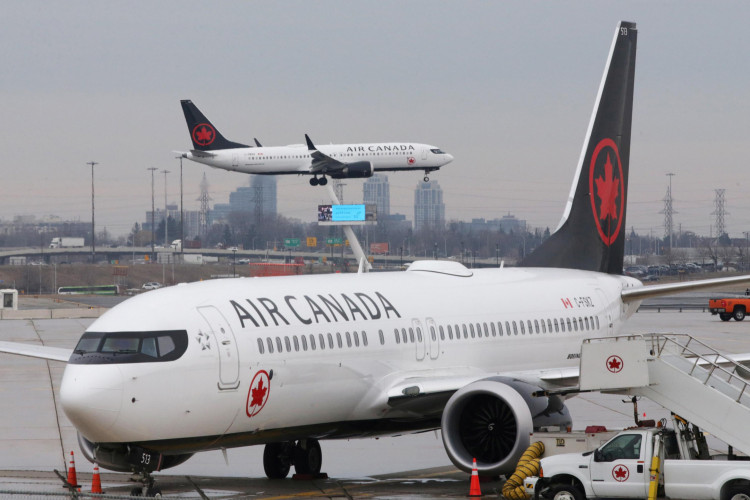Air Canada and the Canadian Union of Public Employees reached a tentative agreement Tuesday, ending a strike that forced the cancellation of thousands of flights and stranded hundreds of thousands of passengers over four days.
"Flight attendants at Air Canada and Air Canada Rouge have reached a tentative agreement, achieving transformational change for our industry after a historic fight to affirm our Charter rights," Hugh Pouliot, spokesman for CUPE, said in a statement. "Unpaid work is over. We have reclaimed our voice and our power."
The deal requires ratification by the union's 10,000 flight attendants. If rejected, the strike could resume. The two sides returned to negotiations Monday night for the first time since the walkout began early Saturday.
The strike had triggered more than 700 daily flight cancellations, with Air Canada operating about half its normal domestic and international schedule. Flight-tracking firm FlightAware reported more than 500 cancellations Tuesday and another 160 scheduled for Wednesday, underscoring the disruption that will take up to 10 days to resolve as crews and aircraft are repositioned.
Air Canada apologized to customers, saying, "The suspension of our service is extremely difficult for our customers. We deeply regret and apologize for the impact on them of this labour disruption. Our priority now is to get them moving as quickly as possible." The airline advised only passengers with confirmed, operating flights to proceed to airports.
The strike persisted despite an order from Canada's Jobs Minister on Saturday instructing employees to return to work. CUPE members had voted 99.7% in favor of striking, citing wages and compensation for duties performed when planes are grounded, including safety checks and boarding assistance. The union said inflation had increased 169% since 2000 while entry-level Air Canada flight attendants' wages had risen only 10%, or $3 per hour.
Air Canada CEO Mike Rousseau told Reuters on Monday that management was "amazed" by the union's defiance of the Canada Industrial Relations Board, which declared the strike unlawful. Rousseau defended the company's offer, which he said represented a 38% compensation increase over four years, calling it "a good offer from our perspective" that "addresses many of the issues that we talk about, if not all the issues."
CUPE disputed that claim, saying wages under Air Canada's proposal would still leave entry-level workers below federal minimum wage. According to union data, an entry-level attendant earns C$1,952 ($1,415) per month before taxes-30% below federal minimums.
Air Canada suspended its third-quarter and full-year 2025 guidance due to the labor disruption, and its shares closed down 3% Monday. The airline, which accounts for nearly half of Canada's domestic flight capacity and operates to 65 international destinations, typically carries 130,000 passengers daily. Rousseau acknowledged the disruption, saying full service could resume only after attendants return to work. "We're still amazed by the fact that CUPE is openly not following the law," he said. "And that is very disappointing from our perspective."




